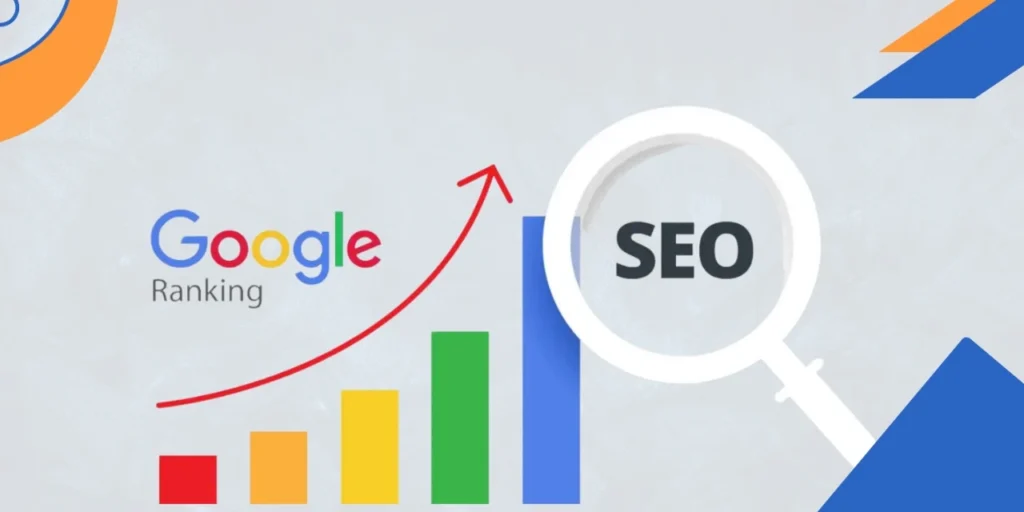Improving SEO is about creating valuable content, optimizing your website’s structure and building a strong online presence. It’s not just about search engines, but also about providing a great user experience.
To boost your search engine optimization (SEO) and climb the rankings on search engine results pages (SERPs) follow these steps:
1. Create Relevant, High-Quality Content
Great content is crucial for SEO success on Google and other search engines. High-quality, authoritative and authentic content is the top factor influencing your search engine rankings. There’s no substitute for excellent content especially in SEO marketing. Tailor your content to meet the needs of your target audience to increase site traffic which in turn boosts your site’s authority and relevance. Sharpen your web writing skills and position yourself as an expert on the topics you cover.
Keywords
For each important page on your website select and focus on a specific keyword phrase. Consider how your audience might search for that page using terms like:
- Digital Marketing
- What is SEO Marketing?
- What Does a Digital Marketer Do?
- How to Leave a Google Review
- What is Local SEO?
- How Much Does it Cost to Develop a Website?
- What is On-Page SEO vs. Off-Page SEO?
Targeting these phrases helps ensure your content matches what users are looking for.
Multiple Keyword Phrases
It’s challenging for a single webpage to rank well for multiple, different keyword phrases—unless those phrases are closely related. For instance, a page might rank for both “Digital Marketing” and “What is Digital Marketing” but it’s less likely to rank for unrelated terms like “SEO Tools” and “Social Media Strategies” on the same page.
To target multiple keyword phrases create separate pages for each one.
Placing Keywords
After selecting a keyword phrase for a page consider these tips:
- Can you include the keyword phrase in the page URL (e.g., in folders)?
- Can you use the keyword phrase in the page title?
- Can you add the keyword phrase to headings and subheadings?
Answering “yes” to these questions can help improve your search engine ranking. However, ensure the content remains natural and user-friendly. Avoid overloading the URL or page with the same keyword as readability and usability are more important than just optimizing for search engines.
Content
Content plays a crucial role in search engine rankings. Optimizing your content is known as ‘on-page SEO’ or ‘page optimization.’ To improve your rankings include your keyword phrase multiple times throughout the page—ideally once or twice in the opening and closing paragraphs or two to four more times in the rest of the content. Be authoritative and include strategic links to relevant sources and additional information both within your site and on other useful websites. Quality content is essential for boosting your SEO.
Experience & Expertise
When creating content share your personal experiences and expertise with your audience. This approach helps your content stand out especially in a world where AI-generated content is abundant. Your experiences and knowledge build credibility, engage users and contribute to long-term success. They also align with search engines’ goals of providing high-quality, relevant information which can enhance your online presence and improve SEO performance.
SEO Formatting
Use bold, italics, heading tags (especially H1) and other emphasis tags to highlight your keyword phrases but don’t overuse them. It’s important to keep your writing natural and engaging. Don’t sacrifice good writing just for SEO. The best content is created for the reader not just for search engines. For more insights, explore additional resources on SEO marketing to discover new content opportunities.
2. Update Your Content Regularly
Search engines value fresh content so it’s important to keep your site updated. Regular updates signal that your site is relevant. Check your content on a regular schedule (like every few months) and make necessary updates. Add new information, update sources and make changes to keep your content current or useful for your audience.
Blogging
Adding content to your blog that includes relevant keyword phrases can help improve your search engine rankings. Blog posts can be brief updates on the topics you’re focusing on. Link your related webpages and blog posts together to provide readers with more information and a better understanding of the topic.
3. Metadata
Each page of your website has a section between the <head> tags for metadata which provides information about the page’s content. If you have a CMS site, the UMC web team might have pre-filled this data for you. Still, it’s important to review and update the metadata as your site evolves.
Title Metadata
Title metadata controls the page titles shown at the top of a browser window and as headlines in search engine results. It is the most crucial metadata for your page.
For CMS websites, the web team has set up an automated system that creates the meta title based on your page title. This makes it essential to use well-crafted page titles with relevant keyword phrases.
Description Metadata
Description metadata provides a brief summary of your page’s content that may appear in search engine results. Think of it as a storefront window display—it should be a clear and appealing description that encourages people to click on your page. A good meta description usually has two complete sentences. Even though search engines might not always use your meta description it’s still important to include one.
Keyword Metadata
Keyword metadata is not commonly used by search engines to rank pages anymore. However, it’s useful to include your keyword phrases here. Aim for about 3-7 phrases each with 1-4 words. For example, “Google ppc” could be a good keyword phrase to include.
Use Alt Tags
Always use alt tags (alternative text descriptions) for your images and videos. These tags help search engines understand your media and make your site accessible to people using text-only browsers or screen readers.
Use Schema.org Markup
Although search engines are good at understanding content, using Schema.org markup on your webpages can be very helpful. This includes adding details like publication and modification dates. Implementing this markup can improve how often search engines crawl your content and how it appears in search results.
4. Have a Link-Worthy Site
To attract links from other websites and boost your search engine rankings create a webpage that is rich in content, authoritative and helpful to visitors.
Enhance your site’s authority and credibility by including relevant links within your text. Instead of using generic “click here” links, use descriptive text that includes the name of the destination. For example, instead of “click here,” write “Digital Web Solutions.” This approach is better for search engines and provides more value to your readers, including those using screen readers. Descriptive links help improve SEO and make your content more accessible.
SEO Rankings
Use tools like Google Search Console, Bing Webmaster Tools or Moz to monitor your SEO rankings. After 4-6 months, you should notice an increase in search engine impressions. In the following months, these impressions should start turning into clicks which you can track using your SEO tools and web analytics.
With this data, you can further optimize your content to improve your rankings and better serve your target audience.
5. Optimize for Mobile & Execute Technical SEO
Make sure your website works well on mobile devices like smartphones and tablets. Optimize images and other media so they load quickly on mobile. You can use tools like Google’s Lighthouse to check how mobile-friendly your site is.
Work with a skilled web developer to apply best practices for technical SEO. This includes making your site fast and easy to use. Compress images, reduce the number of HTTP requests and enable browser caching. Use a clear and organized URL structure that’s easy for both users and search engines to understand. Also, implement schema markup to improve how your content appears in search results.
Successful SEO is not about tricking Google. It’s about partnering with Google to provide the best search results for users.
Why Prioritize Content Creation Over Off-Page SEO?
Off-page SEO involves actions outside your website to improve search engine rankings. Although opinions differ on its importance, we believe that investing time and resources in creating valuable content is more beneficial for your business.
High-quality content builds your brand’s reputation as a trusted source. It attracts and engages users, encourages return visits and promotes content sharing. While off-page SEO tactics can provide short-term boosts, creating relevant content leads to long-term growth and stronger relationships with your audience. By focusing on content creation, we’ve achieved better, more sustainable results compared to relying solely on off-page SEO strategies.
FAQs
How to Improve SEO on Google?
To improve SEO on Google, focus on creating high-quality relevant content optimizing your page titles and meta descriptions, using proper headings and building a strong backlink profile. Regularly updating your content and ensuring your website is mobile-friendly also helps.
How to Improve SEO Ranking?
Improve your SEO ranking by targeting specific keywords, creating valuable content, optimizing for mobile and ensuring fast load times. Utilize internal linking, gather quality backlinks and regularly update your content.
How to Improve Local SEO?
Enhance local SEO by optimizing your Google My Business profile, gathering positive customer reviews, using local keywords and ensuring your NAP (Name, Address, Phone number) is consistent across all online platforms.
How to Improve On-Page SEO?
Boost on-page SEO by using keyword-rich titles and headings, optimizing meta descriptions including relevant keywords throughout your content and using internal links. Ensure your site is mobile-friendly and loads quickly.
How to Improve SEO on Shopify?
Improve SEO on Shopify by using keyword-rich titles and descriptions, optimizing images with alt text, creating high-quality content and building backlinks. Utilize Shopify’s SEO apps and tools to enhance your efforts.
How to Improve SEO on WordPress?
Enhance SEO on WordPress by using SEO plugins like Yoast, optimizing your content with keywords, improving site speed, using clean permalinks and creating an XML sitemap. Regularly update your content and ensure it is mobile-friendly.
How to Improve Organic SEO?
To boost organic SEO, create valuable, keyword-rich content, optimize your website’s technical aspects, build high-quality backlinks and engage in social media marketing. Regularly update your site and ensure a positive user experience.
How to Improve SEO on YouTube?
Improve SEO on YouTube by using keyword-rich titles, descriptions and tags. Create engaging content, use custom thumbnails and encourage likes, comments and shares. Optimize video transcripts and include relevant links in your descriptions.
How to Improve SEO for Small Business?
Enhance SEO for small businesses by focusing on local SEO, creating valuable content, optimizing your website’s technical aspects and building a strong online presence. Use social media and gather positive customer reviews.
How to Use Google Search Console to Improve SEO?
Use Google Search Console to improve SEO by monitoring your site’s performance, identifying and fixing issues, submitting sitemaps, analyzing search queries and understanding how Google indexes your site. Use the insights to make data-driven decisions.
SEO is not about gaming the system anymore, it’s about learning how to play by the rules.


